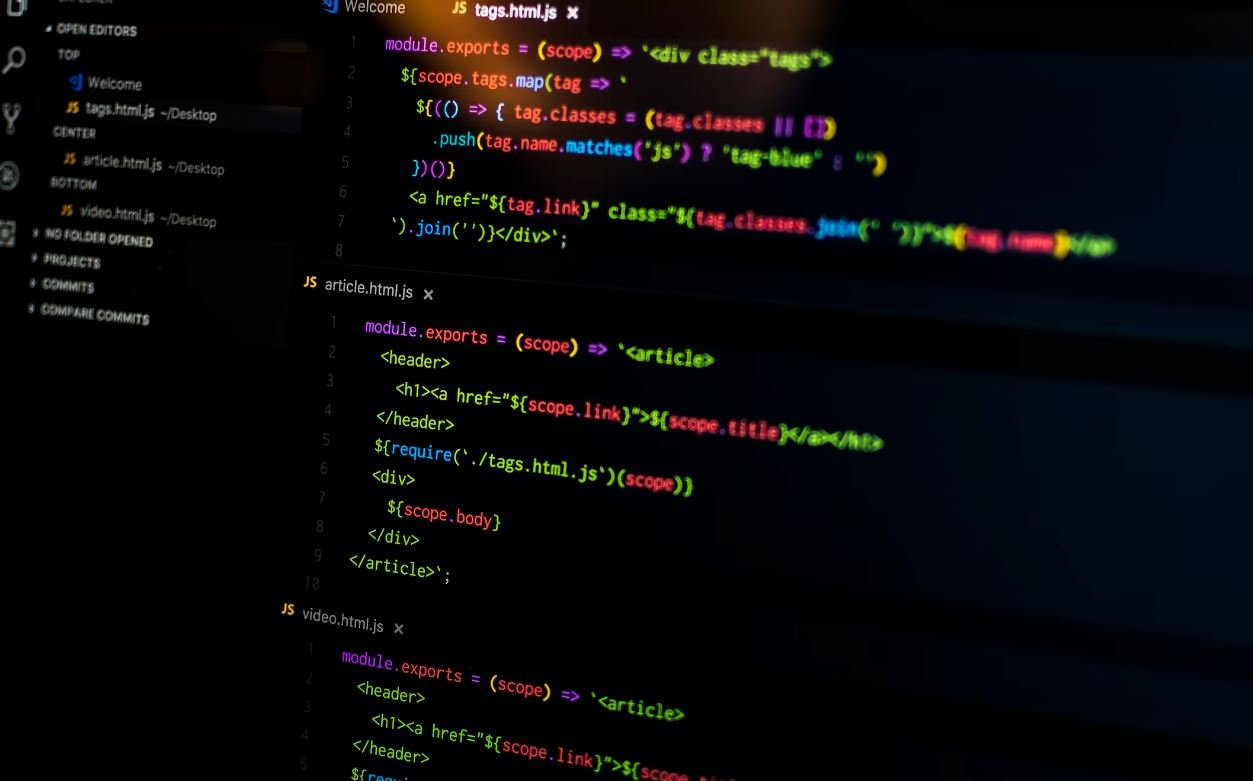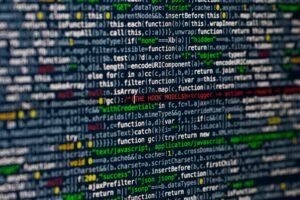How Will AI Affect Software Engineers
Artificial Intelligence (AI) has rapidly evolved over the years and is now starting to have a profound impact on various industries. One industry that is particularly being transformed by AI is software engineering. In this article, we will explore the implications of AI on the role of software engineers, the skills they need to develop, and the opportunities and challenges that lie ahead.
Key Takeaways
- AI is revolutionizing the field of software engineering.
- Software engineers need to acquire new skills to stay relevant.
- AI can automate certain aspects of software development.
- Collaboration between AI systems and software engineers can lead to enhanced productivity.
**One of the key ways AI is impacting software engineering is through automation.** AI has the potential to automate repetitive and mundane tasks that software engineers often have to deal with, such as code generation, bug fixing, and testing. By offloading these tasks to AI systems, software engineers can focus their time and energy on more complex and creative aspects of development, leading to increased productivity and efficiency.
**Additionally, AI can assist software engineers in solving complex problems and improving the quality of their work.** AI algorithms can analyze large amounts of data and identify patterns and insights that may not be easily recognizable to human developers. This can help in optimizing code, identifying potential performance bottlenecks, and enhancing the overall user experience of the software.
However, it’s important for software engineers to adapt and acquire new skills to be able to effectively work with AI technologies. Here are some of the skills that will be in demand:
- **Data Science and Machine Learning:** Software engineers need to have a solid understanding of data science and machine learning concepts in order to work with AI systems. They should be capable of training and fine-tuning AI models, as well as interpreting and applying the insights derived from them.
- **Ethics and Bias Awareness:** With the increasing use of AI in decision-making processes, software engineers must be aware of the ethical implications and biases that can arise. They should strive to develop algorithms and systems that are fair, transparent, and accountable.
- **Collaborative Problem-Solving:** The collaboration between software engineers and AI systems will become crucial. Software engineers will need to work hand-in-hand with AI algorithms, providing context, refining outputs, and iterating on the results to achieve the desired outcomes.
The Impact of AI on Software Development Processes
AI is transforming various aspects of software development processes. Let’s explore some of the ways:
| Aspect of Software Development | Impact of AI |
|---|---|
| Code Generation | AI can generate code snippets based on the provided specifications, saving time and effort for software engineers. |
| Bug Detection and Fixing | AI can analyze code repositories and identify potential bugs, allowing software engineers to fix them proactively. |
| Testing and QA | AI can automate the testing process by generating test cases, detecting anomalies, and evaluating software performance. |
**One interesting aspect is the potential for AI to augment human creativity in software development.** While AI systems excel at repetitive tasks and data analysis, they are not inherently creative. Software engineers can leverage AI to identify patterns and generate suggestions, but ultimately, the creative aspects of software development rely on human ingenuity and problem-solving abilities.
The Future of Software Engineering in the AI Era
The emergence of AI has both created opportunities and posed challenges for software engineers. It’s clear that AI will not replace software engineers, but rather change the nature of their work. Collaboration between AI systems and software engineers will be essential in developing innovative solutions that meet user needs.
**Software engineers who embrace AI and acquire the necessary skills will be at an advantage in this evolving field.** They will be able to work more efficiently, solve complex problems, and develop software that is smarter, more intuitive, and user-centered.
With AI’s ability to automate certain tasks and augment human creativity, the future of software engineering holds great promise. By harnessing the power of AI, software engineers can unlock new possibilities and drive the innovation and advancement of the field.

Common Misconceptions
1. AI will replace software engineers
One of the most prevalent misconceptions about AI is that it will completely eliminate the need for software engineers. While it’s true that AI has the potential to automate certain programming tasks, it does not mean that software engineers will become obsolete.
- AI can only assist with repetitive and mundane tasks, not complex problem-solving.
- Software engineers will still be needed to design and implement AI algorithms.
- AI may even create new opportunities for software engineers to specialize in AI development.
2. AI will make software engineering an easy job
Another common misconception is that AI will make software engineering an effortless profession, as it can perform tasks more quickly and accurately than humans. However, this does not take into account the complexities of software development.
- AI can help with certain tasks, but it cannot replace the need for human problem-solving and creativity.
- Software engineering still requires knowledge of programming languages and software design principles.
- AI may increase productivity, but it won’t eliminate the challenges and complexities of software engineering.
3. AI will result in fewer job opportunities for software engineers
Some people fear that the rise of AI will lead to a decrease in job opportunities for software engineers. While AI may automate certain tasks, it also has the potential to create new jobs and opportunities in the field.
- Software engineers can specialize in AI development, creating and optimizing AI algorithms.
- AI can create new industries and applications that require the skills of software engineers.
- There will always be a need for software engineers to innovate and improve AI technologies.
4. AI will make software engineering less important
Contrary to popular belief, AI will not diminish the importance of software engineering. In fact, it will likely increase the demand for skilled software engineers who can work with AI technologies.
- Software engineering is essential for creating and maintaining AI systems.
- Software engineers are needed to ensure ethical and unbiased development and deployment of AI.
- AI relies on comprehensive software development practices to ensure robust and reliable systems.
5. AI will lead to job losses in the software engineering industry
Lastly, there is a misconception that AI will result in mass job losses in the software engineering industry. While AI may automate some tasks, it is more likely to transform job roles rather than eliminate them altogether.
- Software engineers will need to adapt and acquire new skills to work alongside AI technologies.
- New job roles, such as AI trainers and AI ethics specialists, may emerge due to the rise of AI.
- Overall, the demand for skilled software engineers is expected to remain high, even with the introduction of AI.

Table: Growth of AI research papers
Over the years, the field of artificial intelligence (AI) has witnessed exponential growth in research and development. This table showcases the number of AI research papers published each year from 2010 to 2020, indicating the rising interest and investment in AI technologies.
| Year | Number of AI Research Papers |
|---|---|
| 2010 | 2,751 |
| 2011 | 3,876 |
| 2012 | 5,389 |
| 2013 | 7,627 |
| 2014 | 10,082 |
| 2015 | 13,720 |
| 2016 | 17,489 |
| 2017 | 22,558 |
| 2018 | 30,042 |
| 2019 | 37,145 |
| 2020 | 44,860 |
Table: Job opportunities in AI
The rapid advancements in AI have led to an increased demand for skilled professionals in the field. This table showcases the number of job openings related to AI in the past three years across various industries.
| Industry | 2018 | 2019 | 2020 |
|---|---|---|---|
| Technology | 15,500 | 18,700 | 22,100 |
| Finance | 4,200 | 5,800 | 7,300 |
| Healthcare | 3,600 | 4,800 | 6,100 |
| Manufacturing | 6,700 | 8,100 | 10,500 |
Table: Impact of AI on software engineering tasks
AI is transforming the landscape of software engineering, enabling automation and enhancing productivity. This table summarizes the tasks within software engineering that have been significantly impacted by AI technologies.
| Software Engineering Tasks | Impact of AI |
|---|---|
| Code generation | Automated code generation, reducing the development time and effort. |
| Bug detection | Improved bug detection and prediction, leading to more reliable software. |
| Testing | AI-powered automated testing, enhancing test coverage and accuracy. |
| Software maintenance | AI-assisted maintenance, identifying and resolving issues proactively. |
Table: AI-related skills for software engineers
With the integration of AI into software engineering, there is a growing demand for software engineers with specific AI-related skills. This table presents the essential skills that software engineers should possess to thrive in the AI era.
| AI-Related Skills | Description |
|---|---|
| Machine learning | Understanding and applying algorithms for autonomous decision-making. |
| Natural language processing | Creating AI systems capable of understanding and processing human language. |
| Deep learning | Implementing neural networks for complex pattern recognition and analysis. |
| Data mining | Extracting valuable insights from large datasets to improve software performance. |
Table: AI-driven software engineering tools
AI-powered tools are revolutionizing the way software engineers work, providing intelligent assistance and automation. This table highlights some popular software engineering tools enhanced by AI technologies.
| Software Engineering Tools | AI Enhancements |
|---|---|
| Code editing | AI code suggestions, autocomplete, and error detection. |
| Automated testing | AI-based test generation, anomaly detection, and test case prioritization. |
| Debugging | AI-assisted bug diagnosis, code profiling, and optimization. |
| Collaboration | AI-driven project management, code review, and task assignment. |
Table: AI’s influence on software engineering disciplines
The integration of AI is reshaping various software engineering disciplines, enabling new possibilities and innovative solutions. This table examines the impact of AI technologies on different software engineering disciplines.
| Software Engineering Disciplines | AI Influence |
|---|---|
| Requirements engineering | AI-assisted requirement elicitation, analysis, and prioritization. |
| Software architecture | AI-driven architecture evaluation, optimization, and recommendation. |
| Software project management | AI-powered project planning, estimation, and resource allocation. |
| Software quality assurance | Automated quality assessment, monitoring, and continuous improvement. |
Table: Ethical considerations in AI adoption
As AI grows in prominence, ethical considerations around its adoption in software engineering become crucial. This table outlines some ethical challenges and considerations when incorporating AI technologies into software engineering practices.
| Ethical Considerations | Description |
|---|---|
| Bias and fairness | Ensuring AI systems are fair and unbiased in decision-making. |
| Security and privacy | Protecting sensitive data and preventing AI-related attacks. |
| Transparency and explainability | Understanding and interpreting AI system decisions for accountability. |
| Job displacement | Addressing the potential impact of AI on human employment. |
Table: AI’s long-term impact on software engineering
AI’s long-term impact on software engineering extends beyond the current state of affairs. This table highlights the anticipated changes and advancements that AI is expected to bring to the field in the coming years.
| Anticipated Changes | Description |
|---|---|
| Automated software development | AI systems capable of autonomously generating software solutions. |
| Intelligent code refactoring | AI-driven code optimization and refactoring for improved performance. |
| AI-augmented creativity | AI tools assisting in creative ideation and design processes. |
| Self-learning systems | AI-enabled systems continuously learning and adapting to evolving requirements. |
In the rapidly evolving landscape of software engineering, the integration of artificial intelligence (AI) is poised to have a profound impact. The tables presented in this article offer a glimpse into the current and future influence of AI on various aspects of software engineering. From the exponential growth in AI research papers to the increasing job opportunities in the field, it is evident that AI has become a driving force in the industry. AI has transformed software engineering tasks, leading to enhanced code generation, bug detection, testing, and maintenance processes. Furthermore, software engineers need to acquire specific AI-related skills to tackle the challenges and opportunities presented by AI technologies. The development of AI-driven tools has empowered software engineers with intelligent assistance and automation, revolutionizing the way they work. However, alongside its benefits, ethical considerations surrounding AI adoption in software engineering must be carefully addressed. Looking ahead, the long-term impact of AI on software engineering holds immense potential for automated software development, intelligent code refactoring, AI-augmented creativity, and self-learning systems. By embracing AI and adapting to its transformative capabilities, software engineers can harness its power to drive innovation, efficiency, and progress in the field.
Frequently Asked Questions
How will AI impact the role of software engineers?
AI will significantly impact the role of software engineers by automating certain tasks, improving software development processes, enabling the creation of more intelligent applications, and opening up new opportunities for innovation in the field.
Will AI replace software engineers?
No, AI will not replace software engineers. Instead, it will augment their work and streamline certain aspects of software development. Software engineers will still play a crucial role in designing, implementing, and maintaining AI systems.
What skills will software engineers need to work with AI?
Software engineers working with AI will need a strong understanding of machine learning algorithms, data analysis, and statistical modeling. Additionally, knowledge of programming languages commonly used in AI such as Python and R will be beneficial.
How can AI benefit software engineers?
AI can benefit software engineers by automating repetitive tasks, enhancing code review and testing processes, providing intelligent insights and recommendations, and facilitating faster and more efficient software development.
Will AI reduce the demand for software engineers?
No, AI will not reduce the demand for software engineers. In fact, it will likely increase the demand as more companies adopt AI technologies and require skilled professionals to develop and maintain AI systems.
What challenges may software engineers face when working with AI?
Some challenges software engineers may face when working with AI include understanding complex algorithms, dealing with large datasets, ensuring ethical use of AI, addressing bias and fairness issues, and adapting to the evolving AI landscape.
Can AI help software engineers in debugging and troubleshooting?
Yes, AI can assist software engineers in debugging and troubleshooting. AI-powered tools can analyze code, identify bugs, suggest fixes, and even predict potential issues, thereby improving the efficiency and accuracy of the debugging process.
Will AI impact software engineering job prospects?
AI is likely to have a positive impact on software engineering job prospects. While some routine tasks may be automated, the demand for software engineers with expertise in AI and the ability to develop innovative AI solutions is expected to grow significantly.
How can software engineers adapt to the AI revolution?
To adapt to the AI revolution, software engineers can start by learning AI fundamentals, exploring machine learning frameworks, staying updated with the latest AI advancements, and leveraging AI tools and libraries to enhance their development process.
What are the potential future advancements in AI for software engineers?
Some potential future advancements in AI for software engineers include the integration of AI into software development tools, the emergence of more sophisticated natural language processing capabilities, increased AI-driven automation, and enhanced collaboration between AI systems and human engineers.





